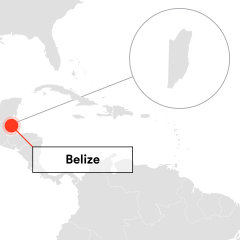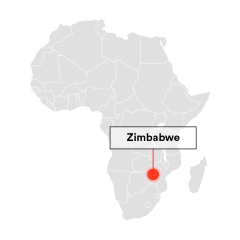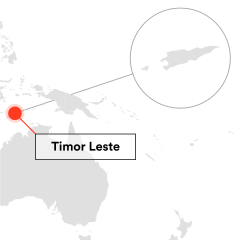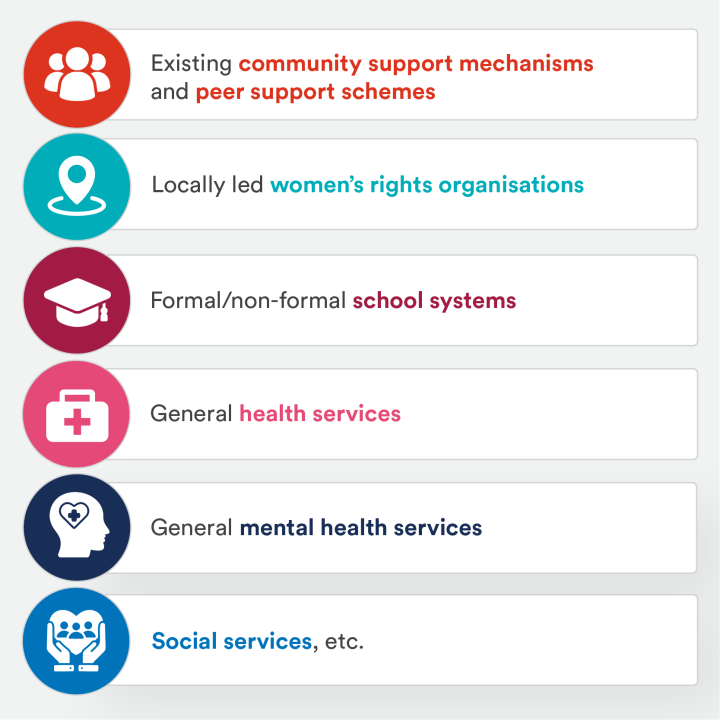Provide mental health and psychosocial support

Provide mental health and psychosocial support
Case Studies

In Belize, the extreme shock of two hurricanes coupled with the COVID-19 pandemic led to tension in many homes. Spotlight Initiative engaged parents and children, including those with disabilities, in parenting programmes that addressed gender norms, biased attitudes and family violence, and offered critical mental health support and food assistance, including referrals to other services. Through this process, the programme found that parents were more willing to speak about family violence when their basic humanitarian needs have been met, underscoring the importance of a comprehensive, adaptable approach rooted in the specific context.



Since April 2020, Spotlight Initiative Zimbabwe, in partnership with Padare Men’s Forum on Gender, has built a movement among men and boys to prevent VAWG and achieve positive transformation at the community level. The project seeks to achieve personal transformation in community leaders who can in turn influence their communities; leaders who will change from being viewed as conspirators and potential perpetrators of GBV to being responsive, credible, and effective leaders in addressing GBV.
In addition, the project aims to transform the negative attitudes and beliefs that drive harmful practices against women and girls. As part of the process, the project offers psychosocial support and counselling to assist and support men to cope with COVID-19 stresses and shocks and to develop acceptable coping mechanisms. The virtual counselling services reached more than 500 men, with the majority being above the age of 18 years.



Children aged 2 to 14 years, clap, stomp their feet, dance and sing under the porch of a small house in a suburb of Timor-Leste’s capital, Dili. The children are taking part in Spotlight Initiative-supported Mental Health and Psychosocial Support (MHPSS) activities under the Child Friendly Space (CFS) initiative organized by the Ministry of Social Solidarity and Inclusion (MSSI), the United Nations Children’s Fund (UNICEF) and non-governmental organization Ba Futuru (for the Future).
"My children look forward to the CFS activities. They sing, dance, are safe and happier.” - Angelina Menes, mother.
In 2021, Timor-Leste was hit by devastating floods. There had also been some gang-related violence reported in the area and COVID-19 pandemic-related restrictions meant children were unable to move outside of the communities to meet friends. Children were traumatised during these times, according to parents.
The CFS play an essential protective role for children in adverse circumstances, providing children a safe place to gather for play, self-expression, and learning, ensuring their mental health and psychosocial wellbeing. In Dili, the children participating in the community-based CFS perform daily psychosocial activities like breathing exercises, expressing themselves with art, dancing, singing and playing, learning how to cope with difficult situations, and strategies for feeling grateful and safe.
Fifteen such CFS have been established across Dili Municipality. In total, over 1600 children between the ages of 2-14 years take part in these community-based activities.








